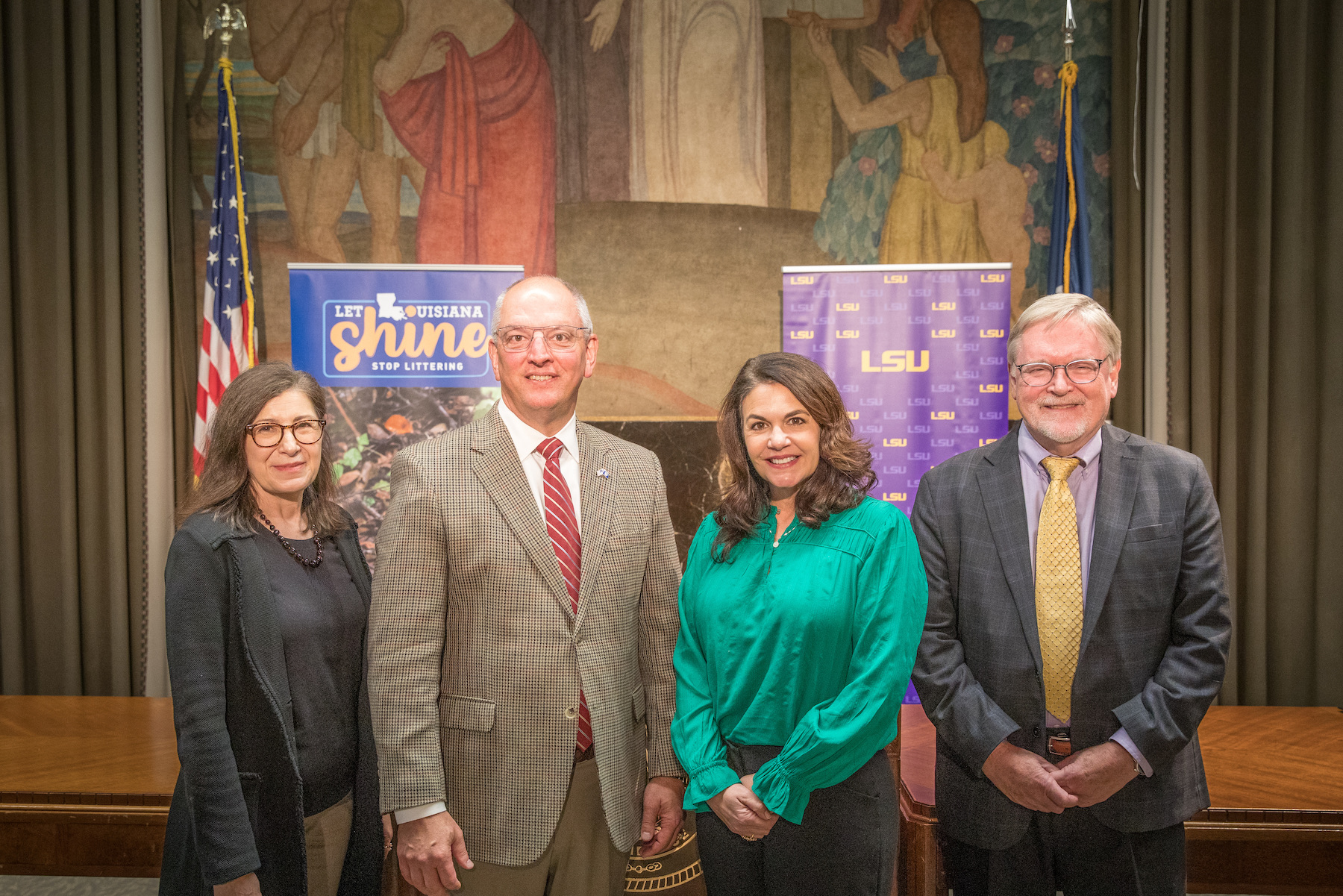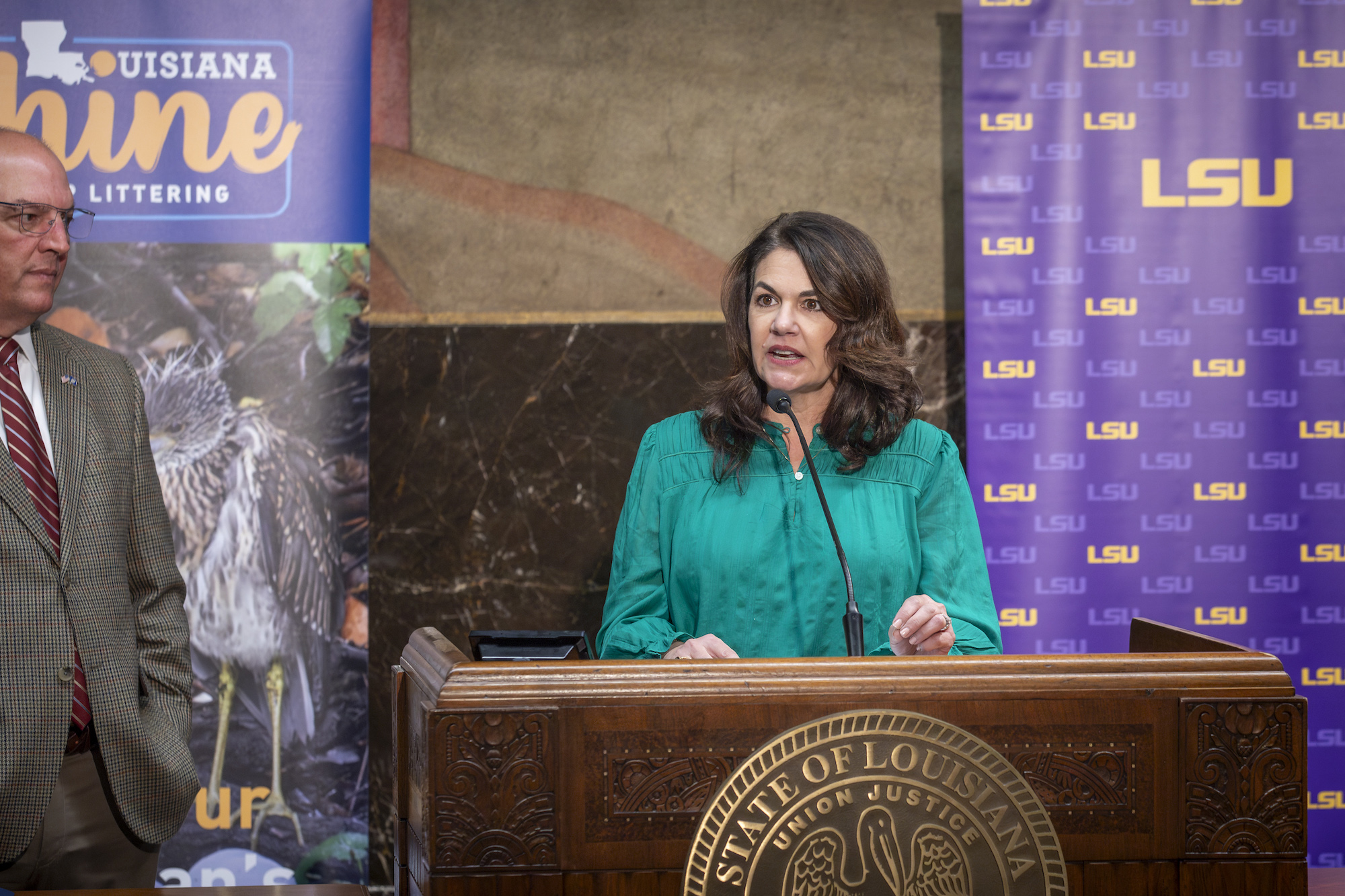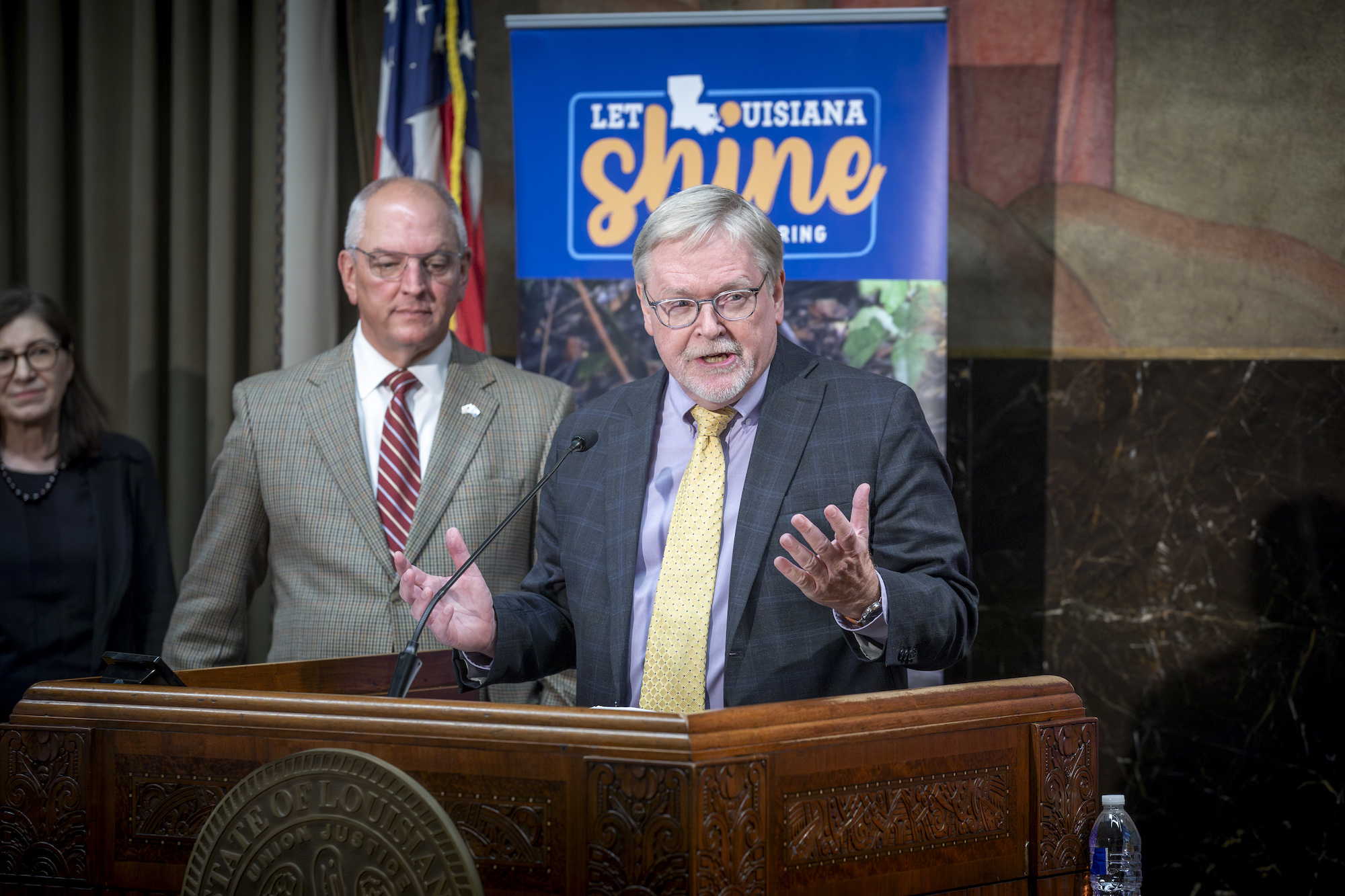Gov. Edwards Announces LSU Litter Institute to Help Solve State, National, International Problem
October 31, 2023

Today, Governor John Bel Edwards announced the new LSU Litter Institute that will address the statewide and worldwide challenge of removing litter and debris from our roadways and waterways. Located at the mouth of the Mississippi River, Louisiana is the natural yet unfortunate endpoint for waterborne trash from almost half of the other U.S. states as well as marine debris forced into harbors and onto shores from strong storms in the Gulf of Mexico. Intense rainfall events in combination with litter and debris also cause significant drainage issues in communities across the state.
The LSU Litter Institute will support impactful litter abatement projects and synthesize international research to advance workable solutions to a $15 billion-plus national problem.
“Louisiana is uniquely positioned to lead in litter abatement because of our geography and waterways,” Gov. Edwards said. “It is the best place to work toward practical solutions that could have a worldwide impact. That’s why it was important to ask the legislature to appropriate the $800,000 to establish the LSU Litter Institute. I am pleased that we have reached this important milestone and thankful to everyone dedicated to this cause. The institute will work to end litter by connecting state, national and international experts, scholars and students to address this serious issue. It is a problem that affects all of us, regardless of where we live. It’s up to us to solve it, and by working together and taking personal responsibility, we can keep our communities, state and beyond clean.”
Funded by $800,000 from the Louisiana legislature, the LSU Litter Institute will build on the work of Governor Edwards’ 2022 task force on statewide litter abatement and beautification. It will also source from the outcomes of the 2022 Louisiana Litter Study, performed by the Keep Louisiana Beautiful program, which showed broad support among residents to ‘get tough on trash.’ Louisiana spends an estimated $91 million on litter each year, while only 10 percent of the money is spent on litter education and prevention.

“Litter is a complex environmental, social, health and economic problem that impacts the whole world,” said Cecile Carson of Carson Consulting, who served on the Governor’s task force and led the statewide litter study. “Establishing this institute offers the opportunity to address the problem from a multidisciplinary approach while bringing together academic, government and business research on litter and debris.”
“Our recent litter study showed there are approximately 144 million pieces of litter on Louisiana roadways alone,” said Susan Russell, executive director of Keep Louisiana Beautiful. “We know beverage containers make up 34 percent of the visible litter along our roadways while 49 percent contains plastic packaging. To tackle litter in Louisiana and nationwide, we need to continue to investigate and pool our expertise. Our citizens deserve to live in clean, healthy as well as beautiful communities.”
While hundreds of organizations in Louisiana work to fight litter, littering and illegal dumping, including government and law enforcement agencies, academic institutions, businesses and nonprofit, civic and youth groups, most operate in isolation from each other. The LSU Litter Institute will help connect and elevate existing efforts, engage local stakeholders and worldwide experts and plan to host an international conference on litter abatement in Louisiana.
A global leader in research and outreach, including land-grant and sea-grant extension services, LSU can offer comprehensive best practices in litter abatement from land to water, including statewide partnerships and student and public engagement.

“Since litter, debris and illegal dumping are caused by both natural disasters and human behavior, it takes a broad and interdisciplinary research approach to address them,” said Robert Twilley, vice president of research and economic development at LSU. “The LSU Litter Institute will bring together expertise in social studies, economics, education, law, public administration, engineering, environmental science, nonprofit management and more to solve this global problem.”
LSU researchers are already engaged in multiple projects to address litter:
- Jeff Kuehny, director of LSU AgCenter’s Botanic Gardens at Burden, a 400-acre research experiment station and home of the LSU Rural Life Museum, has partnered with the Mississippi River Cities and Towns Initiative, Southern University and the Louisiana Stormwater Coalition and received funding from the Environmental Protection Agency and the Department of Environmental Quality to remediate litter in neighborhoods and watersheds. The effort involves community engagement, demonstration sites for litter catchment equipment, including at Capitol Lake, and the development of a statewide stormwater litter management manual.
- Louisiana Sea Grant has support from the National Oceanic and Atmospheric Administration for several litter abatement projects, including to minimize plastic waste at carnival parades and reduce waterborne litter and microplastics in rivers and coastal environments.
- Mark Benfield, professor in the Department of Oceanography & Coastal Sciences in the LSU College of the Coast & Environment, has spent the past decade studying plastic pollution while conducting surveys of microplastics in the Mississippi River and northern Gulf of Mexico. He has also led citizen science projects in Baton Rouge and in cities around the world to study pollution from the COVID pandemic and better understand sources of litter to protect communities and the environment.


